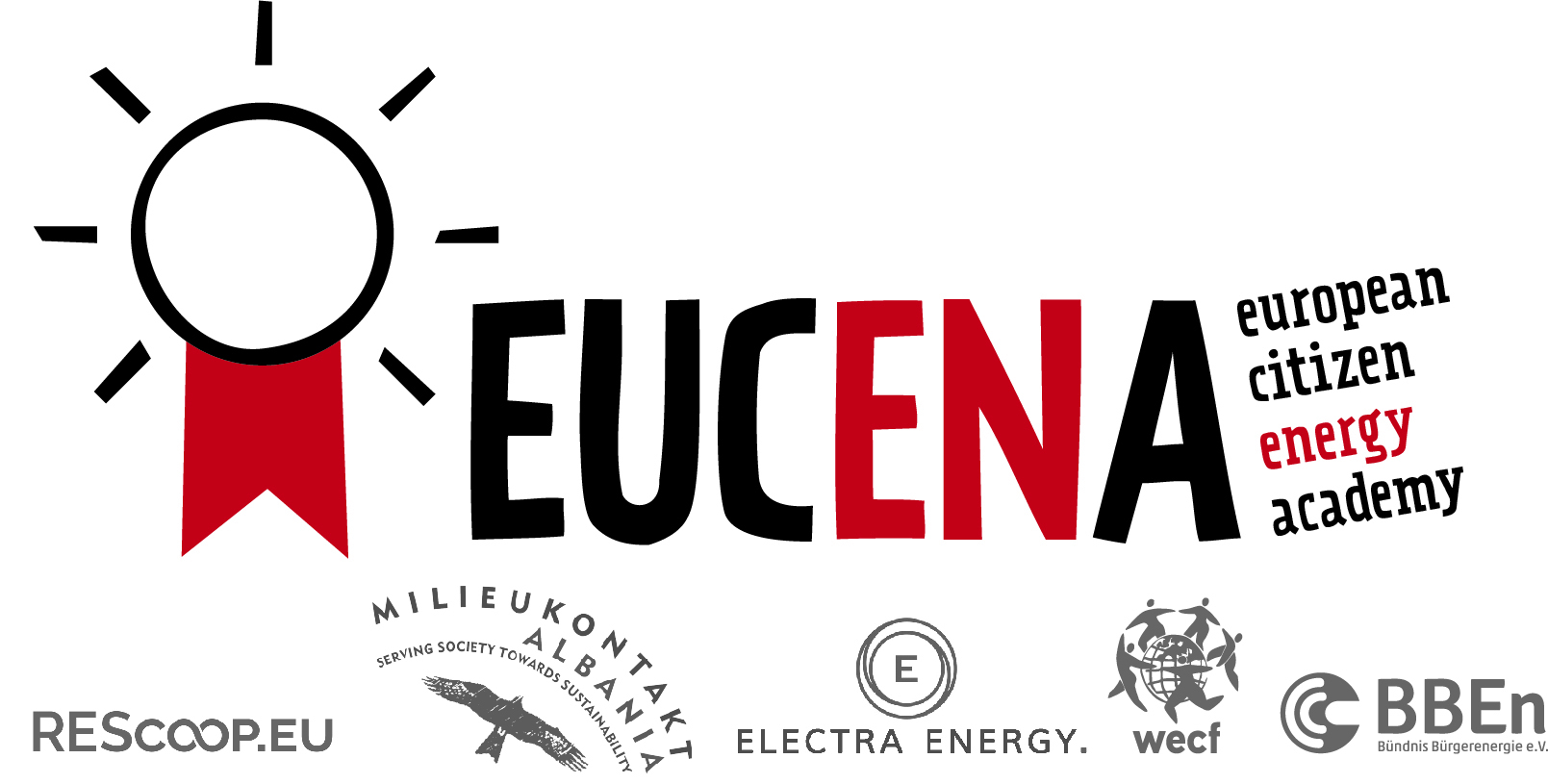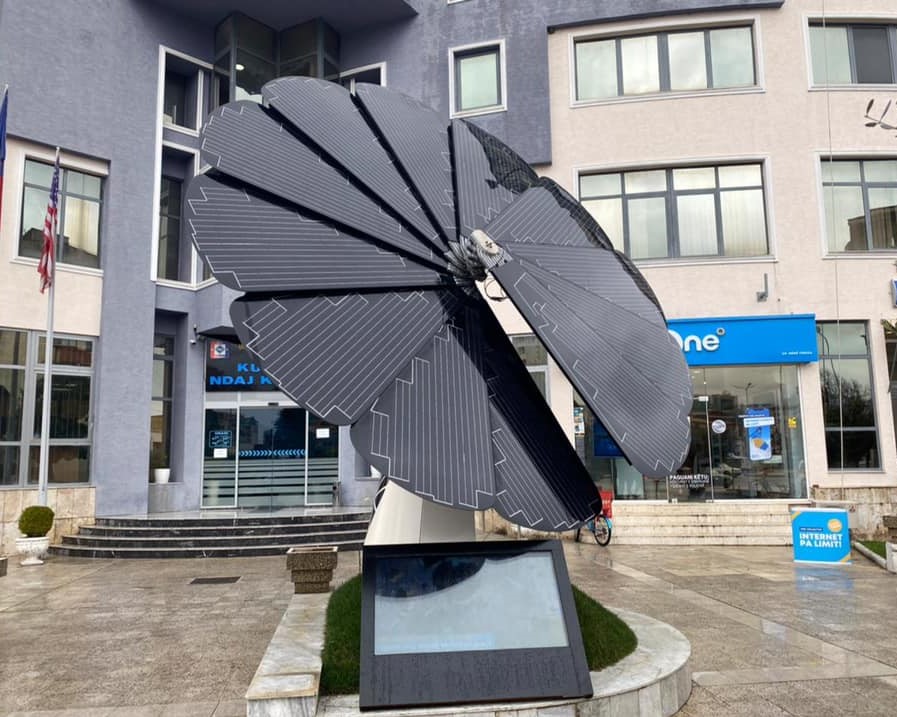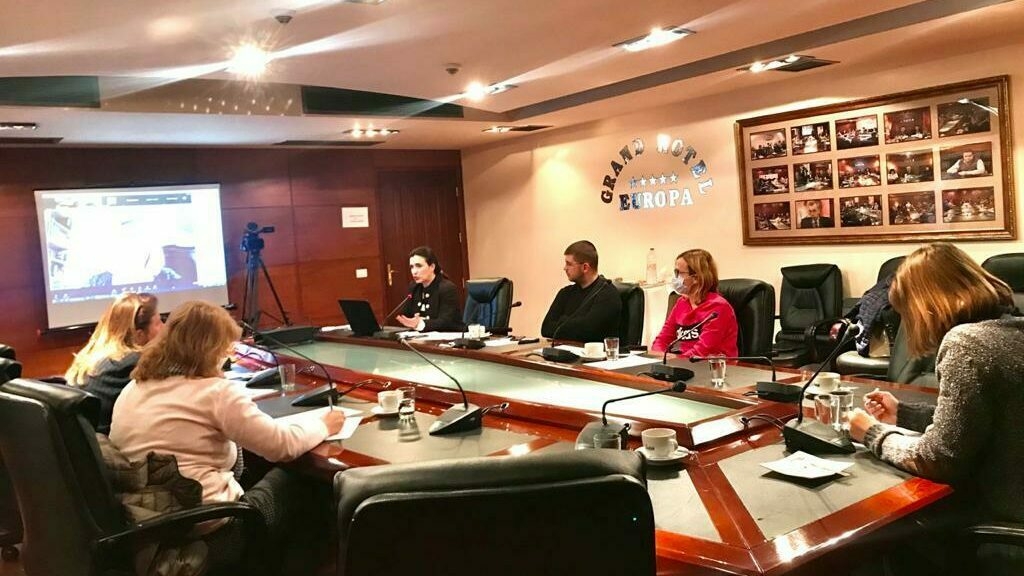The Albanian energy transition calls for the participation of citizens!

According to Eurostat data from 2016, Albania ranks third in Europe in terms of electricity generation from renewable sources, following Norway and Iceland. With a share of 86% of its total production, Albania’s renewable electricity generation rose well above the European average. The lion’s share of that astonishing amount of renewables in the country’s domestic electricity generation was accounted for by hydroelectricity. Energy from wind and solar, on the other hand, is still rare, leaving the country’s electricity generation highly dependent upon just one source. Moreover, despite being one of Europe’s main producers of renewable electricity, Albania’s total final energy consumption is still largely based upon oil products. Renewables made up only 37,2% of its total final energy consumption in 2017, according to data from the IEA.
Today, specialists from the Ministry of Infrastructure and Energy (MIE) consider the increase of the share of renewables to 42% of its total final energy consumption (2020-2030) as Albania’s main challenge. They want to reach this goal by liberalizing the energy market and diversifying the country’s power portfolio. Private interests to produce energy from renewable energy sources have already changed. In fact, requests from businesses and investors to invest in photovoltaic parks have increased. Consider, for example, Karavasta photovoltaic park (the biggest park for the Balkans) or even the eleven permits issued by the MIE for the construction of other photovoltaic parks in Albania.

Another important step in achieving a sustainable energy system is improving the country’s overall energy efficiency, i.e. lowering that “final energy consumption”. A meeting held between experts of the European Citizen Energy Academy project (EUCENA) and representatives of the Energy Efficiency Agency, declared the Agency responsible for improving and promoting energy efficiency throughout the energy cycle in all sectors and economic zones of the country. This is followed up by the MIE, which certifies energy auditors who will offer services to interested actors. After an audit, the business, household, or public entity should take measures and make the necessary investments to make energy efficiency improvements where needed.
Empowering citizens
As the Albanian energy landscape is changing, we must, however, consider how much attention is being paid to energy consumers within the country’s energy transition.
Who’s targeted by these audits?
To what extent are consumer interests protected?
In other words: who benefits from Albania’s transition towards a renewable energy system?
In December 2018, the EU’s Renewable Energy Resources Directive entered into force, as part of the Clean Energy for all Europeans Package, a legal framework that will help the EU meet its 2030 climate and energy objectives. This legislative package signals an EU that is strongly committed to making citizens active participants in the energy transition, ensuring openness, democratic governance, and autonomy in Europe’s future energy system.

Representatives from the MIE and the Energy Efficiency Agency contend that the concept of a ‘Citizens Energy Community’ is rather new for Albania. Nevertheless, as a country negotiating to become an EU member state, its energy transition, too, should include energy communities.
The EUCENA project, a partnership between Milieukontakt Albania, REScoop.eu, WECF, BBEn, and Electra Energy aims to conduct a thorough analysis of the existing legal and regulatory framework and of the different opportunities and approaches of a variety of stakeholders (citizens, public institutions, businesses, domestic and international donors) regarding citizen energy communities. Experts will share their know-how in the first stages of the development of the energy communities, thereby enabling communities to become an active part of the energy transition.
About EUCENA
EUCENA supports the citizen energy movement throughout Europe by fostering knowledge creation and transfer between Southeast and Central Europe. Specifically, it provides knowledge and tools on community building, development, and cooperation between communities. EUCENA is supported by the European Climate Initiative (EUKI) of the German Federal Ministry for Economic Affairs and Climate Action (BMWK).
If you want to stay informed, please contact Antonia Proka (antonia.proka@rescoop.eu).
Sources
EUROSTAT. (2018). Energy and transport statistics for the enlargement countries 2018 edition.
EUROSTAT. (2018, September 21). 30% of electricity generated from renewable sources – Products Eurostat News – Eurostat. Retrieved April 7, 2021, from https://ec.europa.eu/eurostat/…
IEA. (2021). Country profile: Albania. Retrieved April 6, 2021, from https://www.iea.org/countries/…
REScoop.EU, & ClientEarth. (2020). Energy Communities under the Clean Energy Package. Transposition Guidance, 99. Retrieved April 6, from https://uploads.strikinglycdn….
